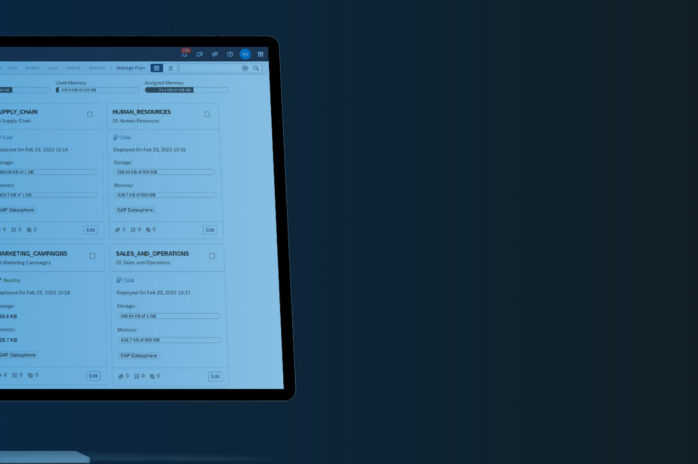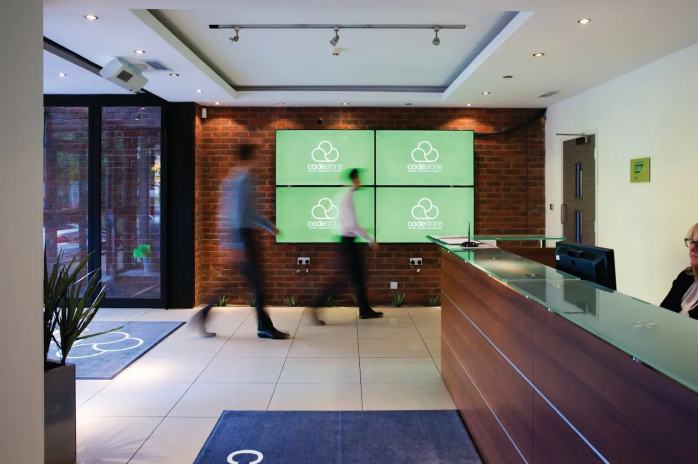Ask most mid-sized businesses what they think when they hear “SAP”, and you’ll get a response along the lines of: “We’re not big enough for that.”
It’s a conversation I’ve had more times than I can recall, and I understand why the perception exists. SAP built its name serving the world’s biggest organisations. It’s a heavyweight, and when you’re running a business with 100 to 250 employees, it can feel like using a sledgehammer to crack a nut.
But that couldn’t be further from the truth.
I often meet finance leaders who expect SAP to be out of their budget. They come into the first conversation bracing themselves for sky-high budgets and complex, drawn-out projects.
Then we go through what’s possible for mid-market companies, and I can see the relief on their faces.
It’s when they realise they can get an ERP system that’s scalable, internationally-ready and built to grow with them, all within a realistic budget. That’s usually the moment the conversation changes.
The reality is, ERP isn’t just about solving today’s problems. The right platform gives you one system for life, something that grows and adapts with your business rather than holding you back.
The Mid-Market Deserves Better
Back when I started, SAP Business One was the go-to for many growing companies and it still is for hundreds of our customers today. It’s a trusted platform that’s helped countless businesses get the structure they needed to grow with confidence.
These days, the conversation often turns to SAP Cloud ERP (previously known as S4/HANA), especially for mid-market businesses looking for something faster to deploy and ready to scale. Because it’s cloud-based, the speed of delivery is on a different level. I was recently involved in an implementation where we delivered finance, consolidation and FP&A across multiple companies and countries in just five months, all for a fixed price. That kind of turnaround simply wasn’t possible before.
But speed is only part of the story.
SAP ERP Cloud (S4/HANA) isn’t just a finance system; it’s the heart of a fully integrated ecosystem designed to grow with your business.
Over my years working alongside growing businesses, I’ve seen it connect effortlessly into tools like SAP Concur for travel and expenses, SAP SuccessFactors for HR and workforce planning, and SAP Analytics Cloud, SAP Datasphere and SAP Business Data Cloud to deliver unified data and embedded AI capabilities. These solutions can be added in modular bites when the time is right for your business.
I understand why people still see SAP Cloud ERP (S/4HANA) as an enterprise-only solution. It is used by some of the biggest companies in the world, but those are highly customised private-cloud deployments. The public cloud edition offers the same enterprise-level capability at a fraction of the cost, making it accessible to mid-market businesses that want to future-proof their operations.
That’s the beauty of the mid-market sweet spot: you start with a core ERP foundation, then scale into enterprise capabilities, adding expense management, HR, analytics or data products without ripping and replacing. It’s flexible, powerful and built to support growth at every stage.
The challenge has never been the software. It’s with the perception.
The reality is that the earlier you start, the better you’re set up to grow.
Start With Where You Are
Many mid-market businesses hesitate to implement ERP because they believe it requires mapping out every department, managing multiple entities or navigating complex supply chains before it’s worthwhile. In reality, that can hold you back. I often recommend starting with a Minimal Viable Product like Codestone’s SAP Qualified Partner Packaged Solution. We designed it based on years of experience working directly with CFOs and finance teams, then had it reviewed and certified by SAP as a rapid deployment model.
It provides a solid, finance-led ERP foundation quickly and at a fixed price, making it the ideal starting point. From there, you can build as you grow, adding new functionality, supporting more entities and meeting evolving requirements over time.
That’s how most successful projects evolve: start with what matters now, then grow the system as your business grows.
They’re not buying software. They’re investing in a platform that can evolve with them.
A Lasting Relationship
I’ve got clients that I’ve worked with for more than 15 years, supporting them from their first ERP steps through to where they are now. Over that time, their teams have grown, their operations have become more complex and their ambitions have evolved. Yet they’ve never had to rip out their ERP and start again. They’ve simply scaled the system as and when they needed to.
That’s the part I really care about: helping businesses not just implement a system but build something that lasts. ERP isn’t a one-and-done exercise. It’s a journey, and the right partner with the right platform makes all the difference.
Final Thought
If you’re running a mid-sized business and you’ve ruled out SAP or haven’t even considered it because it feels too big, I’d urge you to think again.
I’ve spent nearly two decades in the thick of ERP projects, sleeves rolled up and working alongside customers as they’ve scaled. I’ve seen firsthand how SAP supports growth, not in theory but in practice, with growing UK businesses that simply needed a platform they could trust to scale with them every step of the way.
You don’t need to be a giant to run SAP. You just need to think like one.



































































